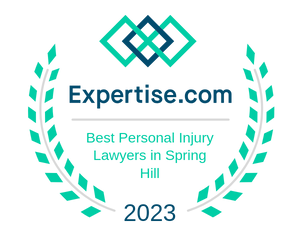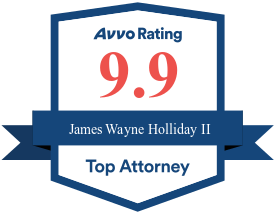- Seek medical help. If you need emergency medical assistance for your injuries after a slip-and-fall accident, have someone call 911. When emergency responders arrive, cooperate with them. Go to the hospital if directed to do so. If you do not go to the hospital right away, visit a doctor within 48 hours. There are injuries such as a head injury that may not be immediately obvious to you. You will need a doctor’s record of examining and treating you for injuries to file a claim.
- Report your accident. Find out who is in charge of the property where you fell — the owner or property manager — and let them know that you fell and were injured. Ask to file a formal report. Some businesses will have policies and notification procedures to follow and forms to complete, but many do not. Try to file a report and request a copy of the report. If there are no procedures, get an email or postal mail address and, as soon as possible, write and send a description of what caused the accident, the date and time it happened, and a description of your injuries. If the police or the business’s security personnel responded to your accident, request in writing a copy of their report and keep a copy of your letter.
- Start a file. Keep a copy of your accident report and all other correspondence between you and the property owner or manager, or anyone who represents them, such as an insurance company. Keep all bills and receipts connected to your medical treatment, absences from work, or any changes in your life caused by your fall and injury. If you damaged personal property (clothing, jewelry, phone, camera, etc.) in your fall, save it.
- Gather witness information. Did others see you fall? Ask them to help by giving you their contact information including name, address, telephone number, email address. Write down this information for any friends who were with you, too. Ask if you can record a statement from them on your phone or another device. Suggest that it will be easier to record a statement sooner while their memory is fresh rather than to have to remember and write it down later.
- Take photos. Photograph anything that can help show how the accident occurred. Photos of a property hazard can provide useful evidence in making a claim. Get photos of what made you fall, such as a puddle, loose stair tread, hole or torn carpet. Photograph the general location and surroundings. Document your injuries and any bandages, cast or neck brace, as well as damage to your personal property, such as your clothing. Photograph a slippery floor from an angle that shows reflections in the shiny wet or waxed surface.
- Make notes about your experience. Write down what happened during the day leading up to your accident. For example, if you were out shopping, then write down where you had been and how you happened to fall. Keep notes about your recovery, including medical treatment, pain, setbacks, effects on your mobility, work missed, and activities or special occasions you missed because of your injuries.
- Look out for yourself. The compensation you pursue for medical bills, lost income, property damage, pain and suffering after a slip-and-fall accident would come from an insurance policy such as a business liability or homeowner’s insurance policy. A slip-and-fall accident lawsuit seeks money from the insurance provider, not from the business owner or homeowner. Don’t let a small business responsible for your injuries plead that you will ruin them. Don’t feel bad about legal action that is only technically against a friend or acquaintance. Insurance is there to cover homeowners and businesses if someone is injured on their premises.
- Don’t publicize your impending case. Do not talk about potential legal action in a slip-and-fall case. Stay away from social media. Do not say or do anything that downplays your injuries or suggests that you were in any way at fault. Don’t cast blame or make negative statements about anyone else involved in the case. All discussion of your fall and injuries should be between you and your attorneys or your doctors.
- Be wary of insurance company representatives. You may hear from an insurance adjuster after being injured in a fall. Their job is to figure out how to pay you as little as possible. Be careful about what you say. Do not accept blame for your accident and do not minimize your injuries. Do not sign a release allowing the insurance company to review your medical file without consulting a lawyer. If you have engaged a lawyer, refer all questions to your attorney. Never sign anything presented by an insurance representative after an accident unless your attorney has reviewed it and advised you to sign.
- Understand Your Legal Options. Talk to a knowledgeable premises liability lawyer in the North Tampa, Florida, area. You can make fact-based decisions once you understand your legal options.
FRANKIE DEAN
James was very open and honest with me about my case. We were always in constant contact. It made me feel like I was his only client and not just a number. If I ever need a personal injury attorney again, James is my go-to!
JACK HUMPHREY
I can’t thank James enough! I was completely stressed out about my case and James really helped me collect my thoughts. I didn’t think attorneys were this compassionate but he has set the bar. I would recommend him to anyone. Thank you for all your help.
DORIS COLLINS
I felt so relieved after talking with James about my accident. I could tell he was very experienced in this area and made me feel at ease. I would HIGHLY recommend James to anyone injured from being in an accident. Top notch attorney and staff.
BOB HOLDEN
I suffered from some very traumatic injuries due to my fall. With everything I had to deal with in getting better, James and his office really made working my case an easy and seamless process. It was reassuring to know they were always there when I needed them.
DAVID MALBERG
Over the last several years from 2015 to 2021, Jim Holliday and Ted Karatinos have successfully litigated several auto lawsuits for my wife and myself.









